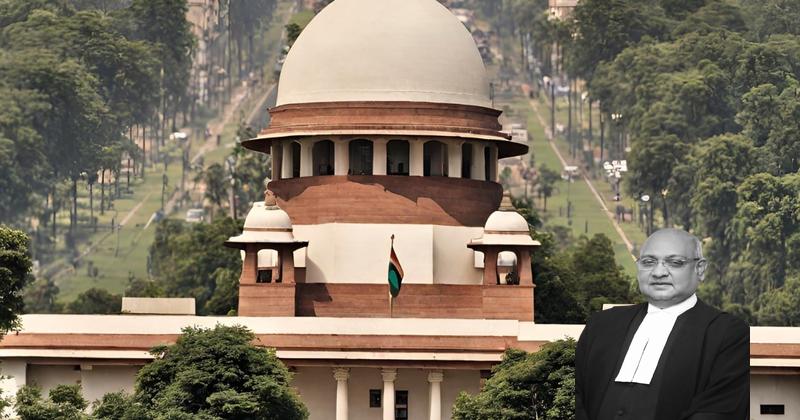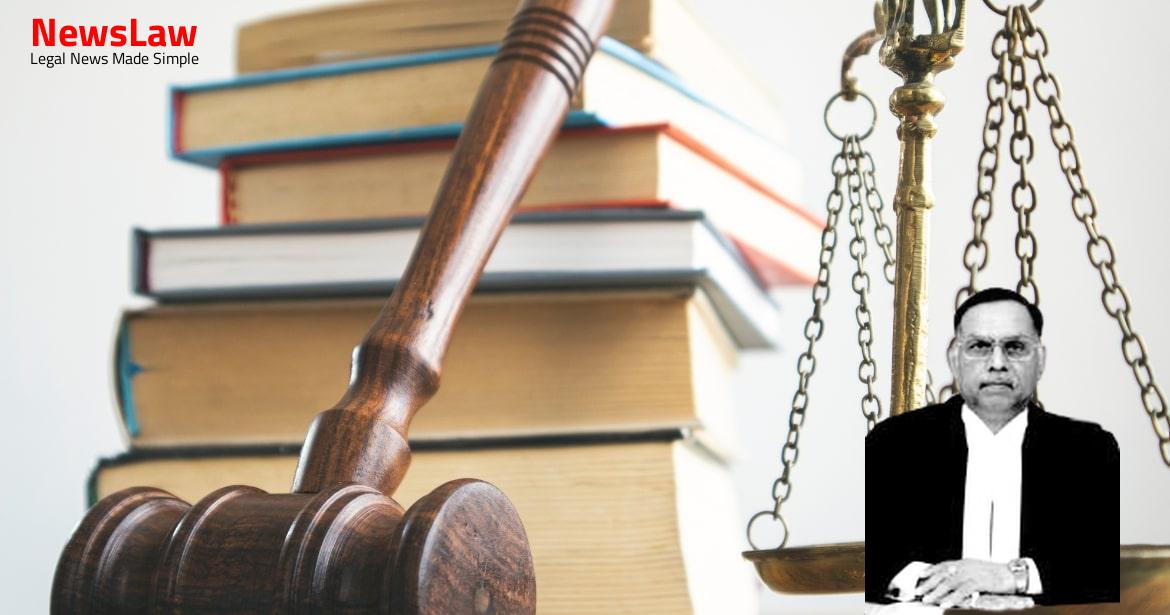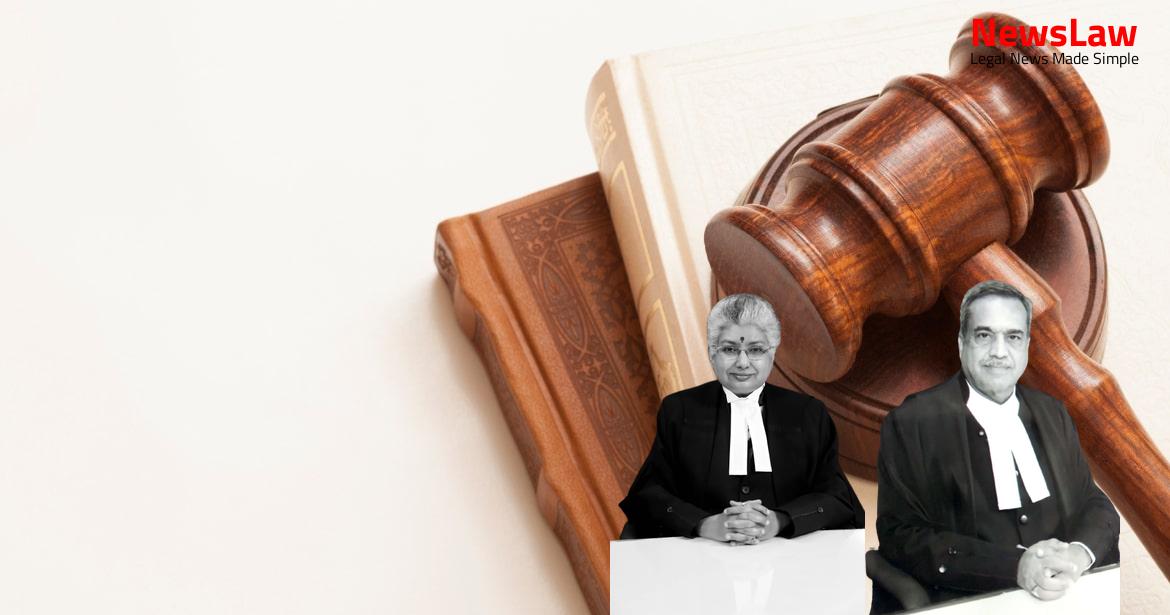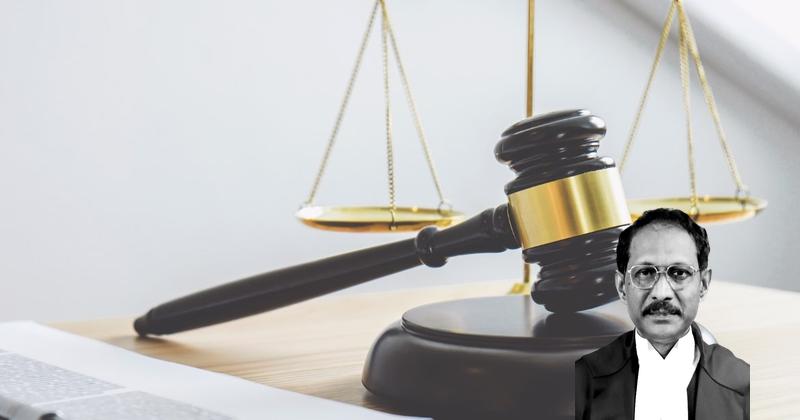The reliefs claimed in the plaint read as under: – “The plaintiff, therefore, prays that this Hon’ble Court may be pleased to pass a judgment and decree granting following relief: a) Declare and hold Section 5 of the Lotteries (Regulation) Act, 1998 (Act No 17 of 1998) and the Rules framed thereunder as being ultra – vires to the Constitution of India and unconstitutional; and b) Declare and hold Section 6 of the Lotteries (Regulation) Act, 1998 as being ultra-vires to the Constitution of India and unconstitutional as being violative of Article 14, to the extent it empowers the Central Government to pass orders prohibiting a lottery organized in contravention of provisions of Sections 5 of the Lotteries (Regulation) Act, 1998; and 2 c) Declare and hold Section 7, 8, 9 of the Lotteries Regulation Act, 1998 as being ultra-vires to the Constitution of India and unconstitutional as being violative of Article 14 to the extent they provide for penal consequences for violation of Section 5 of the Lotteries (Regulation) Act, 1998; and d) Declare and hold Rule 5 of the Lotteries (Regulation) Rules 2010 as ultra-vires to the Constitution of India and unconstitutional as violative of Article 14; and e) Grant permanent injunction, restraining the Defendant Union of India from issuing orders under Section 6 of the Lotteries (Regulation) Act, 1998 prohibiting sale of tickets of a lottery organized in contravention of provisions of Sections 5 of the Lotteries (Regulation) Act, 1998, in relation to the lotteries organized by the Plaintiff; and f) Grant permanent injunction, restraining the Defendant Union of India from initiating or taking any penal action under Section 7, 8 and 9 of the Lotteries (Regulation) Act, 1998 against any person for violation of Section 5 and 6 of the Lotteries (Regulation) Act, 1998 to the extent it relates to the lotteries organized by the Plaintiff; and g) 2 to 36 States and Union Territories from prohibiting sale of tickets of lottery organized by the Plaintiff State in their respective jurisdiction; and h) Award costs against such Defendant who may contest the Plaintiff’s claim to relief; and/or i) Pass such further orders as this Hon’ble Court may deem fit and proper in the facts and circumstances of the case.” Section 5 of the Act of 1998 is to the effect that a State Government may prohibit the sale of tickets of a lottery organized, conducted or promoted by every other State within its territories.
In addition to the declaratory reliefs, the State of Meghalaya has also sought a perpetual injunction restraining the Union of India from issuing orders under Section 6 of the Act of 1998 in relation to the lotteries organized by it; a perpetual injunction restraining the Union of India from initiating or taking any penal action under Sections 7, 8 and 9, for violation of Sections 5 and 6 of the Act of 1998, in relation to the lotteries organized by it; and a perpetual injunction restraining the States and Union Territories, viz., defendant Nos. Union of India and Anr.: (2011) 12 SCC 268, this Court has ruled that recourse to original jurisdiction under Article 131 of the Constitution of India is not permissible to challenge the vires of a statute; and the question is referred to a Larger Bench in Original Suit
No 1 of 2012.
It has been argued on behalf of the State of Kerala that Article 131 of the Constitution requires that the dispute raised thereunder should involve a question, be it of law or fact, on which the existence or extent of a legal right would depend; and it is asserted that the State of Meghalaya cannot claim any ‘legal right’ to sell its lottery tickets in other States. Original jurisdiction of the Supreme Court.- Subject to the provisions of this Constitution, the Supreme Court shall, to the exclusion of any other court, have original jurisdiction in any dispute- (a) between the Government of India and one or more States; or (b) between the Government of India and any State or States on one side and one or more other States on the other; or (c) between two or more States, if and in so far as the dispute involves any question (whether of law or fact) on which the existence or extent of a legal right depends: Provided that the said jurisdiction shall not extend to a dispute arising out of any treaty, agreement, covenant, engagement, sanad or other similar instrument which, having been entered into or executed before the commencement of this Constitution, continues in operation after such commencement, or which provides that the said jurisdiction shall not extend to such a dispute.” This Court observed that Article 131 would be attracted where adjudication is necessary in relation to a legal right of one State or the Union of India vis- 6 -vis other States, as the case may be. It was further observed that as Article 131 would not include even a statutory corporation, as the enlarged definition of a ‘State’ under Article 12 would not extend to Article 131, it would not be permissible for the agents, even if they joined together with their principals, viz., the States of Sikkim and Meghalaya, to maintain a suit under Article 131. : (1977) 3 SCC 592 decided by a 7- 7 Judge Bench of this Court, wherein it was observed that a State’s right to seek enforcement of a legal right arising under the Constitution cannot be thrown out in limine as being outside the scope and ambit of Article 131. But a constitutional provision, which confers exclusive jurisdiction on this Court to entertain disputes of a certain nature in the exercise of its original jurisdiction, cannot be equated with a provision conferring a right on a civil court to entertain a common suit so as to apply to an original proceeding under Article 131 the canons of a suit which is ordinarily triable under Section 15 of the Code of Civil Procedure by a Court of the lowest grade competent to try it.
By the very terms of the article, therefore, the sole condition which is required to be satisfied for invoking the original jurisdiction of this Court is that the dispute between the parties referred to in clauses ( a ) to ( c ) must involve a question on which the existence or extent of a legal right depends. Therefore, though titled as a ‘suit’, a proceeding under Article 131 of the Constitution of India cannot be likened to a civil suit under the Code of Civil Procedure, 1908 However, the premise that any ‘law’ could bar the original jurisdiction of this Court under Article 131, i.e., a suit as it appears from the statement in the plaint, is a misnomer as an enacted ‘law’ cannot possibly control the scope and ambit of a constitutional provision.
However, it was observed that sale of lottery tickets by a State, though not a ‘trade’ under Article 301 of the Constitution, would still be a ‘business’ within the meaning of Article 298(b) of the Constitution.
However, it was noted that hardship was being caused to persons living in distant parts of India owing to Article 131-A, amongst other Articles, and it was decided to omit such Articles, including Article 131-A, from the Constitution by way of the Constitution (43 Amendment) Act, 1977. However, basing on such an assumption, this Court observed that when Central laws can be challenged in the State High Courts as well as before this Court in writ jurisdiction, normally, no recourse can be permitted to challenge the validity of a Central law by invoking the exclusive jurisdiction of this Court under Article 131 of the Constitution. It follows that when the Central laws can be challenged in the State High Courts as well and also before this Court under Article 32, normally, no recourse can be permitted to challenge the validity of a Central law under the exclusive original jurisdiction of this Court provided under Article 131.” State of Bihar and Anr : (2015) 2 SCC 431, another co-ordinate Bench of this Court recorded its inability to agree with the conclusion drawn in State of Madhya Pradesh (supra) that, in an original suit under Article 131, the constitutionality of an enactment could not be examined.
It can be seen from the language of Article 131 that the exclusive jurisdiction of this Court extends to any dispute between the Government of India and any one or more States and the disputes arising between two or more States in various possible combinations specified in the said article. If the question of constitutionality of a statute (either of Parliament or the State Legislature) were to be raised by a party other than the persons specified under Article 131, both this Court as well as the High Courts are competent to examine. to such conditions and limitations as may be prescribed, any court may state a case and refer the same for the opinion of the High Court, and the High Court may make such order thereon as it thinks fit: Provided that where the court is satisfied that a case pending before it involves a question as to the validity of any Act, Ordinance or Regulation or of any provision contained in an Act, Ordinance or Regulation, the determination of which is necessary for the disposal of the case, and is of opinion that such Act, Ordinance, Regulation or provision is invalid or inoperative, but has not been so declared by the High Court to which that court is subordinate or by the Supreme Court, the 13 court shall state a case setting out its opinion and the reasons therefor, and refer the same for the opinion of the High Court.”
It is only the proviso of Section 113 of the Code of Civil Procedure which obliges an ordinary civil court to refer the same for the opinion of the High Court. We direct the Registry to place the matter before the Hon’ble the Chief Justice of India for appropriate orders in this regard.” It is also noteworthy that the case on hand cannot be viewed as limited just to a challenge to the validity of certain provisions of the Act of 1998. Significantly, the Bench in the State of Madhya Pradesh (supra) did not take note of the Larger Bench decision in State of West Bengal (supra), but having referred to the same in State of Jharkhand (supra), the Bench still deemed it appropriate to refer the matter to a Larger Bench. As the State of Meghalaya seeks to assert its right to do business in lotteries under Article 298(b) and its executive power to do so would be subject to parliamentary legislation, viz., the Act of 1998, the grievances raised by it in that context would constitute disputes which fall squarely within the four corners of Article 131 of the Constitution. However, this rule of procedure is held not affecting the jurisdiction of the Court to entertain and deal with the latter suit and does not create a bar to the institution of the suit. Therein, this Court was, of course, considering the applicability of bar under Section 10 to summary suit under Order XXXVII of CPC but, while explaining the connotation of the expression “trial” in Section 10 CPC, observed as under: – “ 8. In view of the object and nature of the provision and the fairly settled legal position with respect to passing of interlocutory orders it has to be stated that the word “trial” in Section 10 is not used in its widest sense.” The above principles of law, with necessary variations, when applied to the present case, lead to the position that even if final determination of the question of maintainability (in case the constitutional validity of the impugned provision is to be decided) may depend upon the decision of Larger Bench, the supplemental proceedings in the present suit, particularly those relating to the prayer of interim relief, cannot be put on hold.
List the matter after ensuing summer vacations.
Case Title: THE STATE OF MEGHALAYA Vs. UNION OF INDIA (2023 INSC 522)
Case Number: ORGNL.SUIT No.-000001 / 2021



